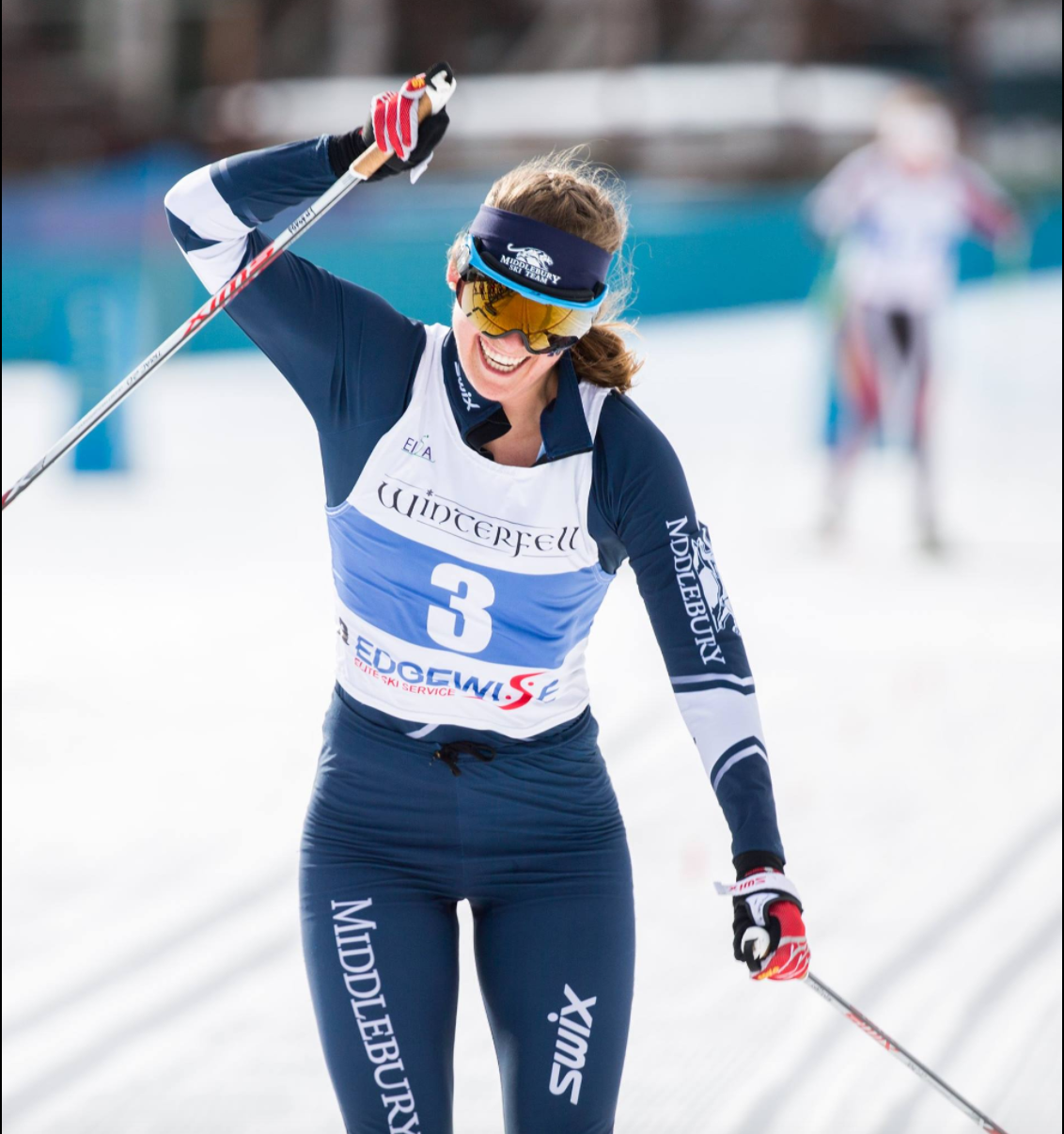How Being A Professional Athlete Gave This Woman The Courage To Be An Entrepreneur
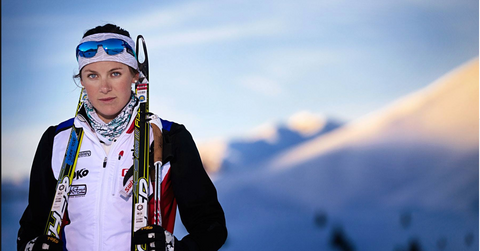
Annie Pokorny takes risks and puts her whole self into everything she pursues, whether that is as a professional cross country skier or an emerging entrepreneur. Don’t let the title “athlete” confuse you because Annie wore many hats as a professional athlete. She was a blogger, fundraiser, speaker, philanthropist and full-time student while training to compete at an Olympic level.
She started cross-country skiing at twelve and had Olympic goals by the time she was sixteen. Four years ago she became a professional athlete, joining the Stratton Mountain School Elite while attending Middlebury College. She finished her career as a member of the Sun Valley Ski Education Foundation Gold Team last year.
Annie decided to leave the sport as a new passion to build a web magazine, called WanderOn, tailored for active, outdoorsy and career-driven women, began to take shape. Annie, along with her business partner and fellow skier, Erika Flowers, were selected to be one of the three emerging businesses to deliver a five-minute pitch at the 2016 Athlete Leadership Connection, a conference devoted to college and professional women athletes, hosted by the Women’s Sports Foundation.
Although Annie and Erika did not win the competition, WanderOn gained a lot of support from a talented group of about one hundred elite women World Champion and Olympic World Medalists.
Her Agenda spoke to Annie on discipline, inspiration, failure and how being a 24/7 professional athlete helped prepare her to face the challenges of starting her own business.
Through Annie’s story, we see how dreams transform into action.
Her Agenda: What inspired you to become a cross-country skier? Can you talk about that time where you were at the World Cup?
Annie Pokorny: [During] my sophomore year in college, the World Cup event was being held in North America for the first time in my lifetime. It was held in Quebec City, so my ski team drove up and we covered our faces in face-paint and went to go watch all of our friends compete in the race.
And at the event, I got separated from [my] group and ended up climbing and sitting perched on top of a fence. When the first races went off, I became glued to this super freezing cold fence for 12 hours because I was so amazed by the athletes on the other side of [the] fence. The literal and metaphorical side of the fence.
[I felt incredibly] inspired by what the athletes were doing and by the tens of thousands of people watching and cheering them on, representing their countries.
I just never been so close to that kind of elite athleticism. You watch it on TV but that’s not really the same. And I realized that these super-humans were people who spoke, ate and tripped like the rest of us.
“It was just this moment of [realization] that I could be one of them too and that I could get on the other side of that fence.”
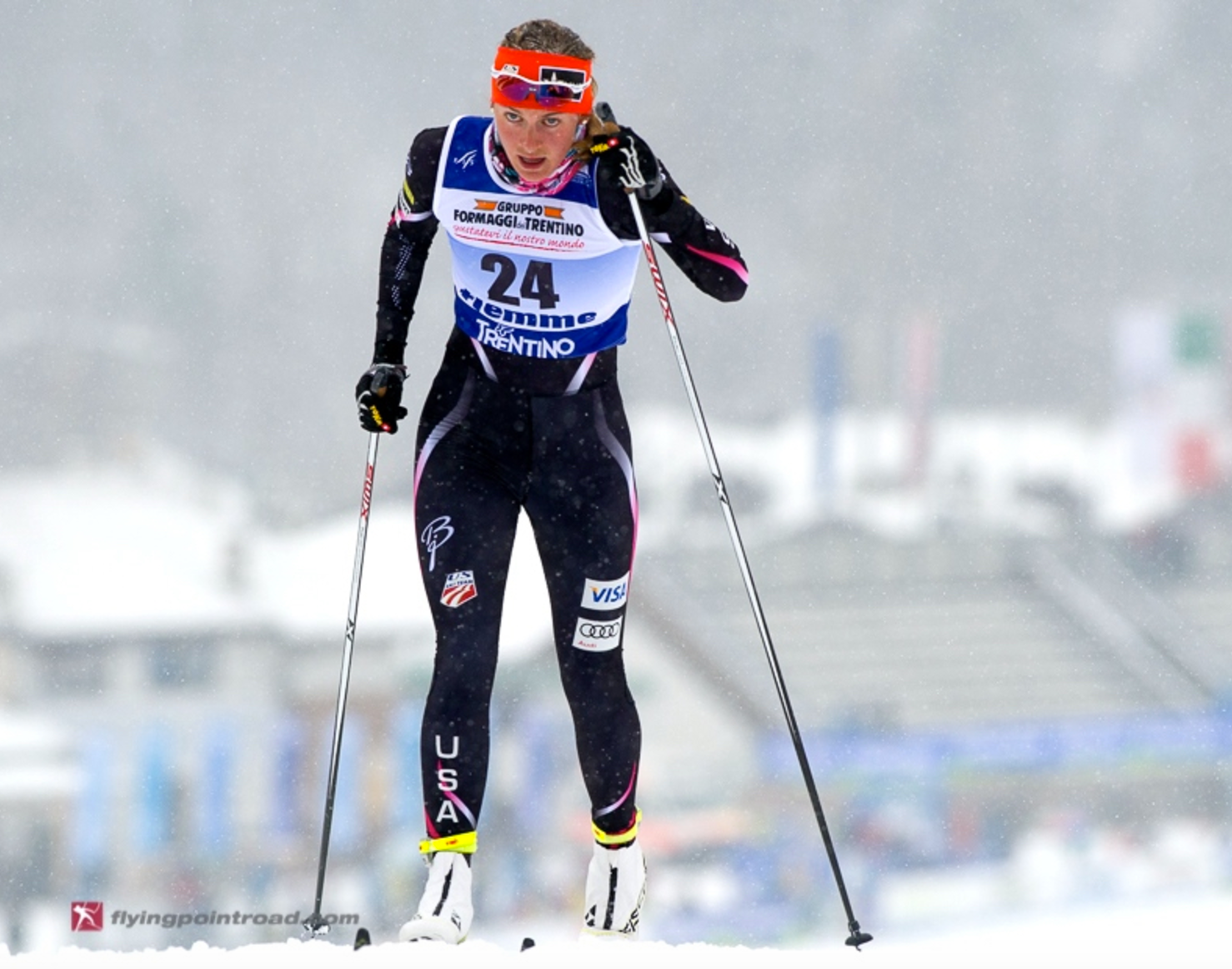
Her Agenda: Training as a professional athlete must take incredible discipline. How did you manage that level of commitment? Were there times in your life, perhaps in college, where training became especially difficult to balance?
Annie Pokorny: Yep. You are usually racing and training in high altitudes using almost every muscle in your body. In order to compete at an elite level, you have to train 800 hours a year, sleep 10 hours a night and eat 4,000 calories a day.
I also spent time trying to [attain] sponsorships and fundraising because – as a fringe sport, cross country skiing isn’t exactly a lucrative career choice. In order to succeed, you had to become a 24 hour athlete. And I was deciding to do that while also completing my education, which perhaps was the hardest way you could possibly do that.
“The nordic ski community creates women who believe that they can. It just fosters a beyond you ‘go girl’ but ‘you will go do it, girl.’”
When I think about the discipline and everything [I] had to sacrifice, I never felt like I was sacrificing anything because I was really in it and really passionate about the sport. Rather, I felt like I was taking advantage of an opportunity that was presented to me. And that was really exciting and really fun.
[However], I did have to choose a major that was small enough that I would be able to work with professors that could adapt to my odd schedule. I also chose easier classes than I wanted to because I knew I was going to be missing school. And I took an extra year to complete school.
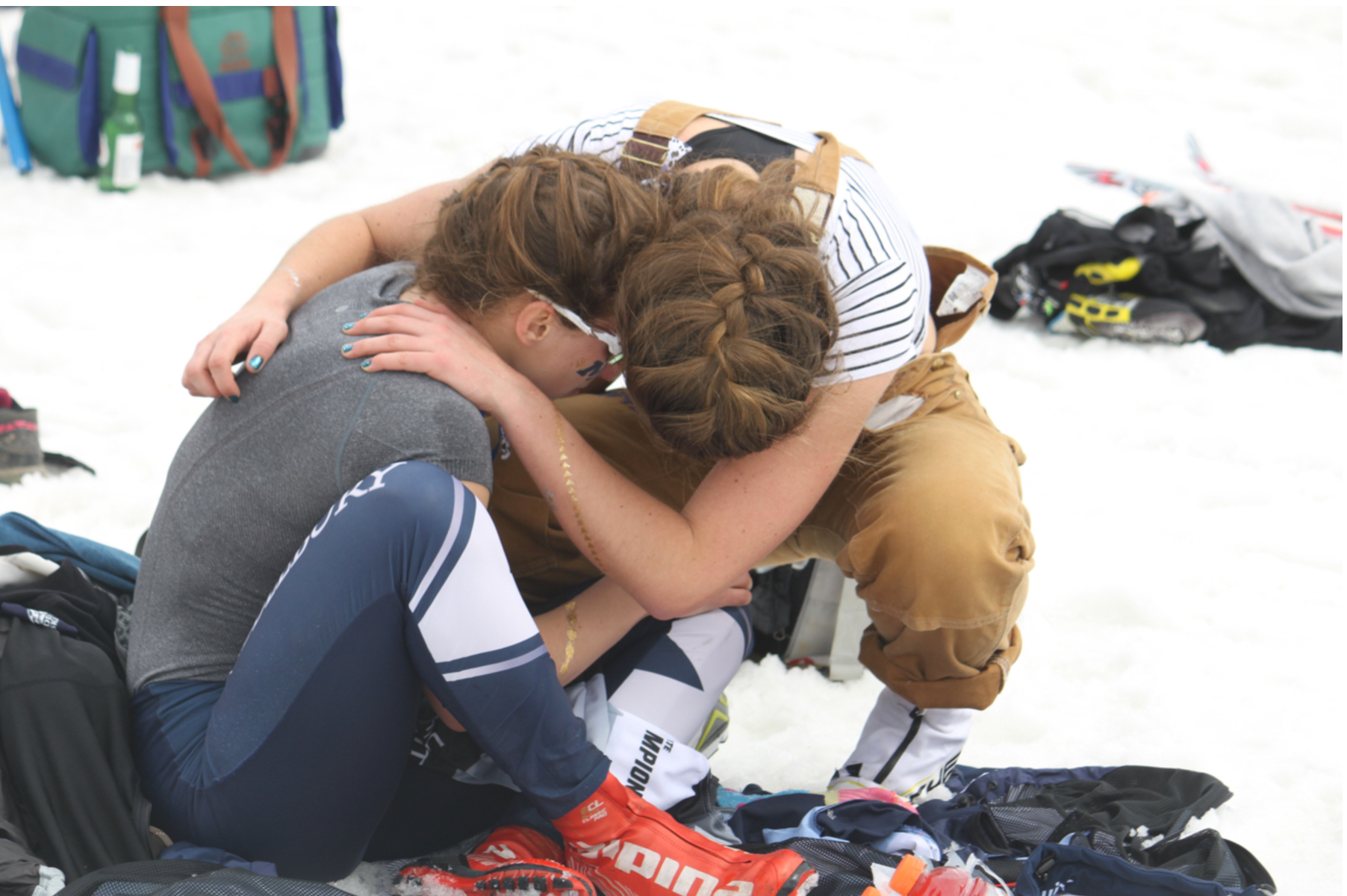
Her Agenda: As an athlete, you experienced setbacks and failure. How did you overcome setbacks, such as losing a race, as a professional athlete? And how did you move on from failure?
Annie Pokorny: Oh man, I could write a book on that! Being a full time athlete is learning how to ride the high-highs and the low-lows. When you are combining this really regimented, high-pressure lifestyle with competing, it will basically combine for you to be awesome or horrible and there is not much middle ground.
And it’s actually how entrepreneurship has been for me as well. I basically alternate from thinking I’m awesome to thinking I don’t have a chance and it reminds me a lot of what it’s like to be an athlete.
There are five or four things I did to deal with all the emotions.
I was good at writing down my goals and writing them in a way that wasn’t “Make the Olympics,” so if I didn’t make the Olympics it wouldn’t make or break who I was. Instead, [having] a system of smaller goals [really helped] so if I lost a race or didn’t reach one of those goals there were always a handful of smaller goals I could turn my focus to.
For instance, although I didn’t do very well on my time-trial, I knew I had a strength-training opportunity the next day where I could lift more. If you have one big goal of making the Olympics then all your eggs are in that basket, [when actually] each egg is its own individual goal, as well.
Maintaining a lot of smaller, process-goals can help divert your attention when one of them doesn’t go well.
Also, in a racing environment, so much is left up to chance, at least in cross country skiing. It’s not just how hard you work or how great your technique is that day. It’s also the weather conditions, the snow conditions, your competitors and it’s all those things coming together. It’s whether or not you slept as many hours as you needed to the night before. There are so many different things going into it and only a few are actually in your control.
So when something would really go wrong, I would take the time to assess and ask myself if it was something that I could control. Was it just that the universe didn’t come together for me that day? And I would try and forget.
The hardest [part] of living this lifestyle of high-highs and low-lows is letting go of things that go wrong and figuring out what you can do next.
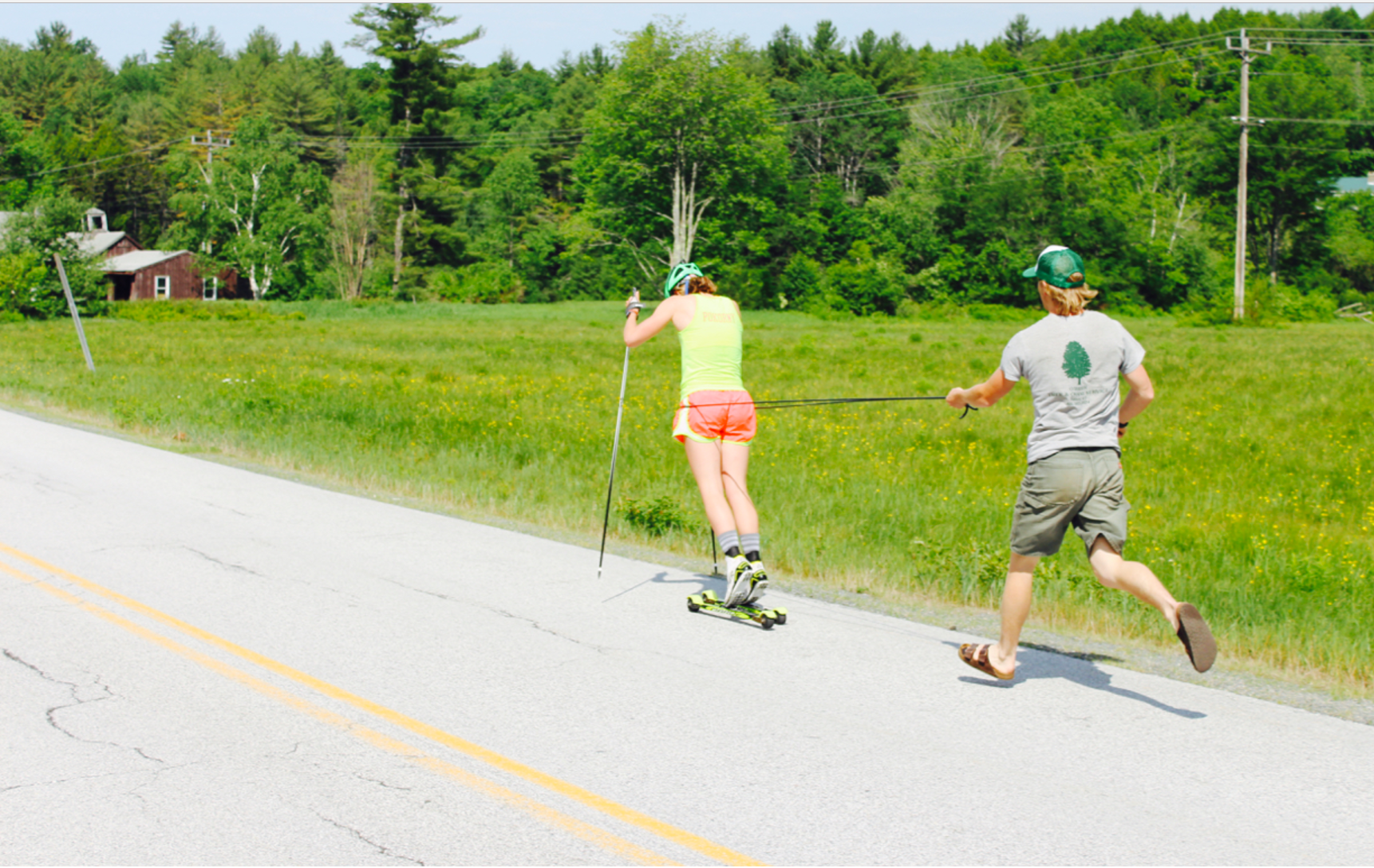
You want to forget your failure and it sucks that you are not always going to succeed. It’s especially hard for people, like athletes, who are go-getters and used to a certain amount of success because they are hard workers. When it doesn’t go well, the failure just seems to be so much more intense in them.
Watching myself and my teammates fail after working so hard was just agonizing. It’s just this real state of agony. But there was this passion inside of me that helped me want to do better the next time.
“Even on the hardest days, the ones of greatest disappointment, missed opportunities or lost time, I wanted to be better. I continued making goals, continued getting up in the morning, pulling on my spandex, and deciding to do better next time.”
Also, although I know I’m putting all myself into something and investing my time and energy, what is produced is not who I am and doesn’t say anything about who I am.
And I think that’s what a lot of athletes do poorly. They look at the results sheet and see that they are lower down than they want to be and they think that affects who they are as a person. You can’t take it too personally. One of the best skills of succeeding in something outside of yourself is recognizing that you are different from your business. You are different from your sport.
Her Agenda: And like you said there are some factors you can’t control.
Annie Pokorny: Right. And that’s exactly why. You can’t control the market or what happens to the weather.

Her Agenda: You talked a little about fundraising in order to support your athletic career. Can you share with me some of the business experience you gained as a professional athlete? And can you elaborate on what it’s like to brand yourself as an athlete?
Annie Pokorny: I was responsible for fundraising money to pay for my training, plane tickets and hotels. My equipment was donated to me by sponsorships, but I was paying for my food; for anything.
Because I was put in a fringe sport that so few people in the US care about, I had to figure out how to make it matter to people. And because I was living a full-time athletic lifestyle, I couldn’t get a job, so I decided to write a blog. [I also] created a blog for my ski team and learned from a mentor of mine who does PR on the East Coast a little about branding.
What are three things that are special about me. What are three parts of my story that people want to be a part of?
A few aspects about myself that made me stand out were my philosophy-side, skiing and sharing that, and being a writerly-little athlete person.
Also, giving back was something I really cared about and brought as part of my story. I loved doing clinics. I absolutely loved meeting up with a group of kids and going for a roller-ski around a park and teaching them how to do 180s.
I learned a lot about sharing and marketing a story and making people want to be a part of an athletic dream whether or not they understood what that actually meant.
I also learned a ton of about being rejected. I got so good at being rejected.
[For instance], I spent all this time making huge sponsorship proposals, which ultimately weren’t asking for that much money. And you usually don’t hear no. You just get ignored. They might say they are interested, but then there is radio silence. And so I got better at communicating and saying: ‘Listen. I appreciate the time you took to listen to this. If it’s a no tell me now so I can go elsewhere.’
It’s also important to not take rejection personally and realize that when you ask others for donations, even from a non profit, it’s all about business. I realized that people were saying no – not because they [didn’t] like me, but because they [didn’t] have the funds or supporting me wasn’t helpful for their business. Instead, I [learned] to approach businesses that I would affect positively.
It became a lesson in creativity and how to create and market products in order to pursue a completely different goal.
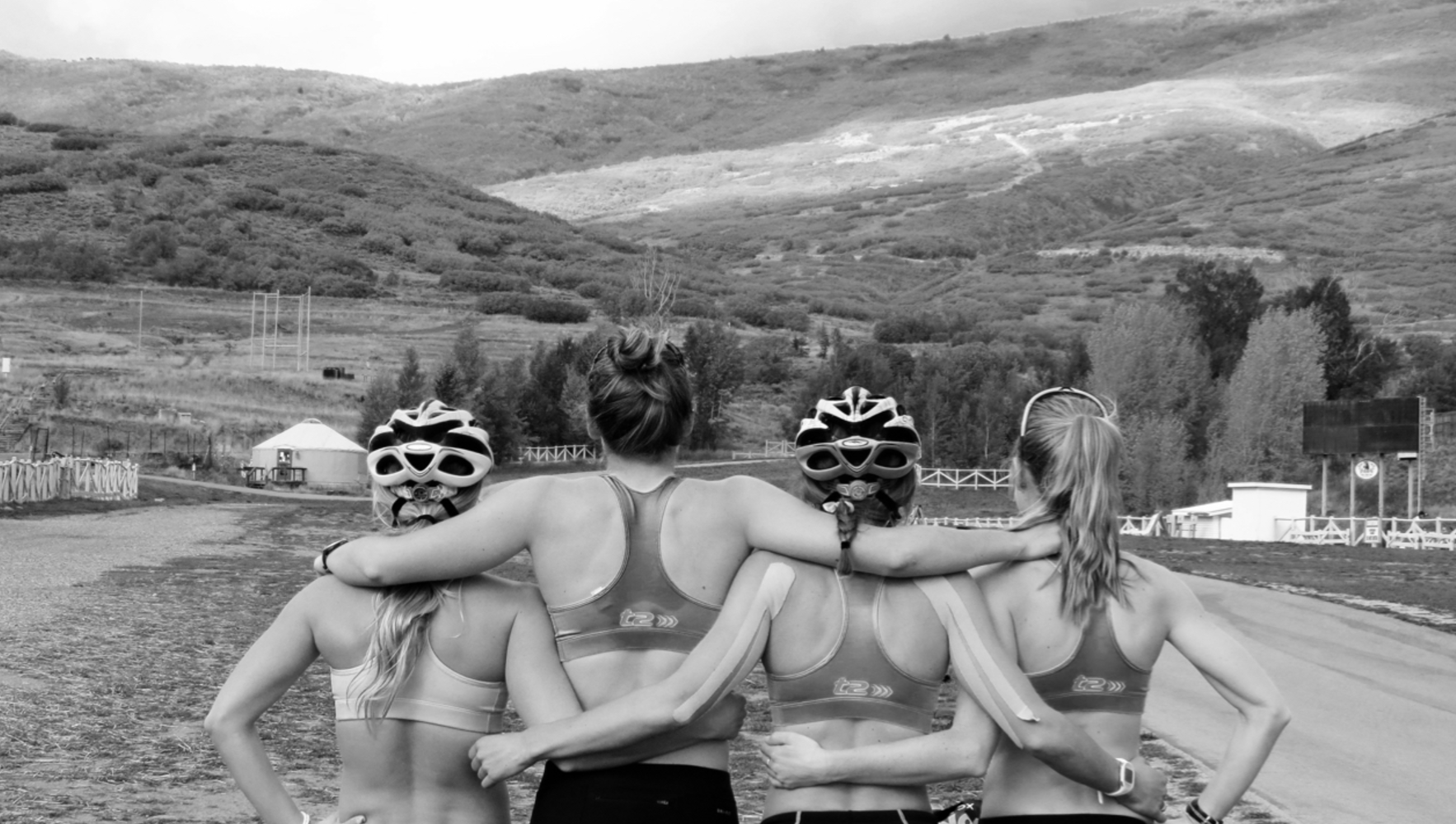
Her Agenda: How did your magazine idea, WanderOn, come to life?
Annie Pokorny: My friend, Erica, and I have high career aspirations, consider ourselves outdoors-women but also consider ourselves feminine. We enjoy getting dressed up. We like clothes. We like pretty things. But we are also like getting muddy once in awhile. And we were having trouble finding a place where there was content that doesn’t consider femininity and nature mutually exclusive. So we decided to create a place-a magazine-that did.
You can be feminine and fashionable without being hyper-sexualized. And [although] the outdoors industry is trying to be more inclusive of women, [they] have also sexualized them more. [Women] are included as long as they are sexy.
We just want to create a space where it is okay to be girly, light-hearted and fun, but totally mess up on your bike and still feel a part of the industry. And part of the group.
